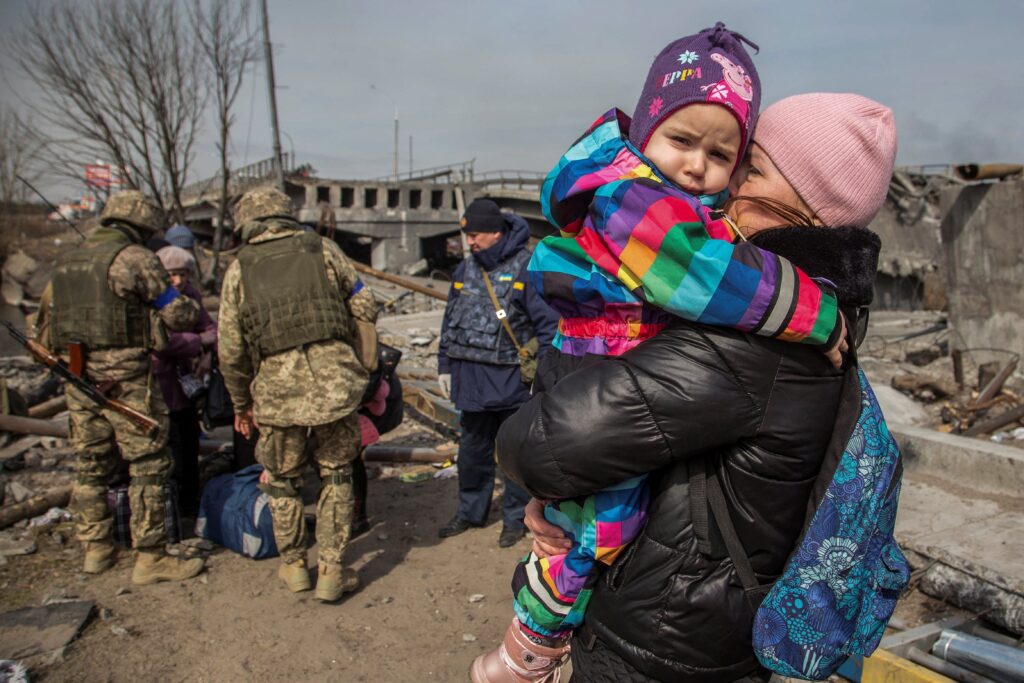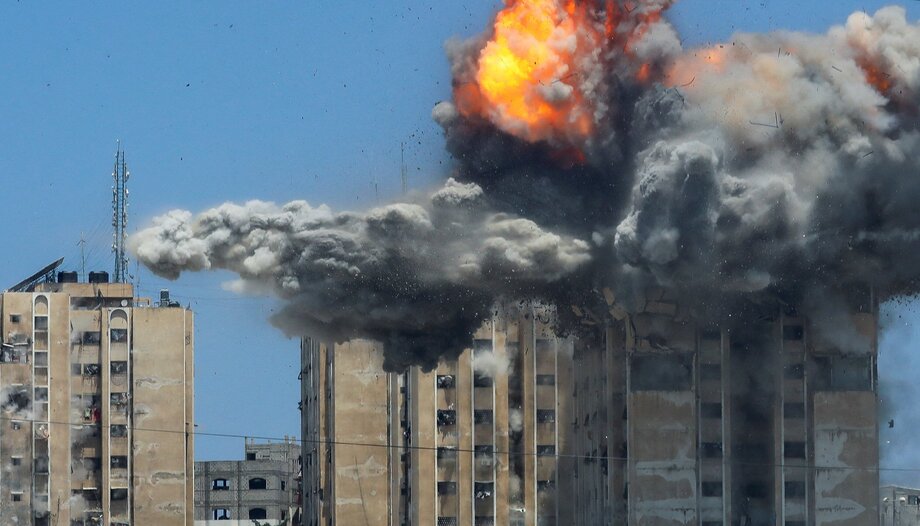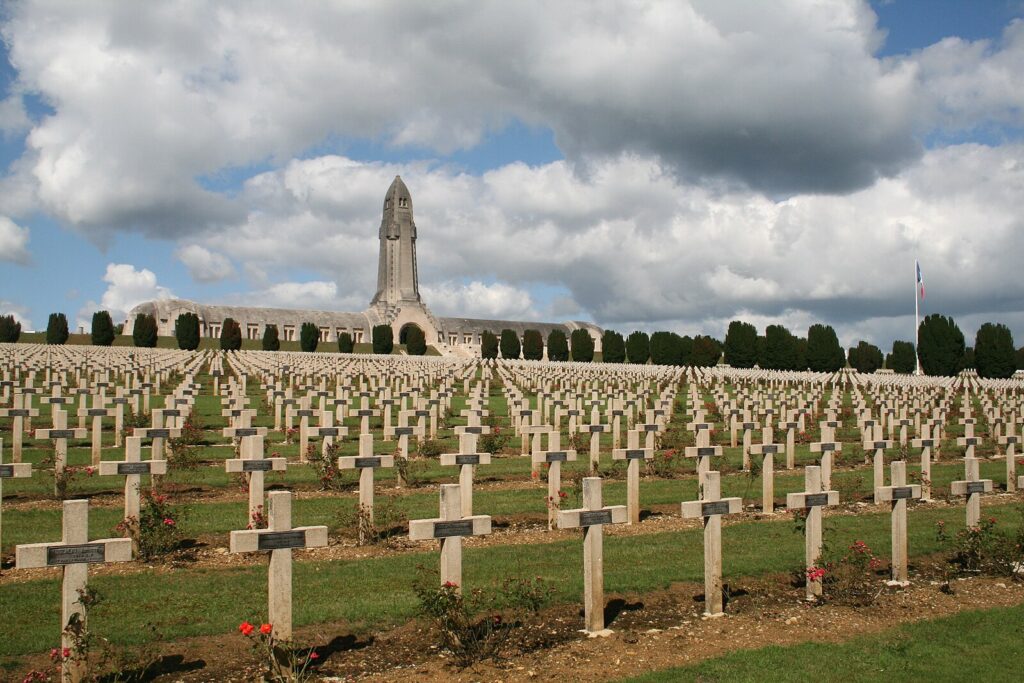Some scientists, many of them atheists, have stated in recent years that faith and religion have been the cause of violence and wars in history. We are talking about Richard Dawkins, Sam Harris or Christopher Hitchens. Is it true that religion causes wars? Relevant studies by intellectuals, Christian and non-Christian, disprove it. Religion has only been at the origin of 5% of wars.
The Christian religion, the God of the Gospel, is a God of peace, alien to all violence. The philosopher René Girard affirms that "this is the great ethical revolution of Christianity". "The God the Father of the Gospel is totally alien to all violence, abhors blood, loves the peaceful and the meek (...), The sacrificial victim is radically innocent".
This is what Professor Alejandro Rodriguez de la Peña, Professor of Medieval History at the University CEU San Pablo, has commented with Omnes in one of his latest books, entitled '.Iniquity. The birth of the state and social cruelty in early civilizations'.
On the issue of violence and religion you can also consult the recent work entitled '.Violence and religious factedited by the theologian, historian and academic José Carlos Martín de la Hoz, with contributions from various authors. In these lines we will focus on the wars from a global point of view.
Religious components
In fact, extensive studies and important databases show that, contrary to the thesis of linking violence and religion, the causes of wars have not been primarily religious. This religious factor may have influenced between 5 and 7 percent of conflicts, but no more.
In any case, religions may have been partly at the origin of wars, but neither principally nor exclusively. Although it is true that some have had obvious religious components, such as the Crusades (Christians vs. Muslims), or the wars of religion in Europe (Protestants vs. Catholics, 16th-17th centuries). Both topics can be consulted in the aforementioned book by historian José Carlos Martín de la Hoz.
Numerous wars, the great majority, have been caused by power struggles, political, imperialist, economic, ethnic, etc. Some ideologies have also provoked massive violence, such as Stalinism in the Soviet Union (atheism), Pol Pot's regime in Cambodia, or Maoism in China.
Religions are not at the origin of wars
Historians and philosophers specializing in war and the ethics of politics and violence reject that religions are at the origin of wars. Omnes has consulted these days two specialists who have published on the subject. Both work in the same educational group (CEU), but operate in different universities and cities, and have their own autonomy.
Alejandro Rodriguez de la Peña, professor of Medieval History at CEU San Pablo University, based in Madrid, is the author of the trilogy 'Compassion. A History' (2021), 'Empires of Cruelty' (2022), and 'Iniquity. The Birth of the State and Social Cruelty in Early Civilizations' (2023).

Less religion, more violence
From his point of view as a professor who studies violence and horror, Professor Rodriguez de la Peña considers that "religion tempers and reduces violence". "It can be stated without a doubt that "religion has been a determining factor in a percentage between 3 and 5 percent of wars in history, but it does not go beyond that," he explained to Omnes.
The author of 'Iniquity' also points out that "violence is the human condition, the human condition is bellicose". But "the thesis I state in my books is that 'the less religion, the more violence'. Or formulated the other way around, 'the more religion, the less violence'. I agree with "René Girard, for whom religion diminishes violence, attenuates it".
Perpetual peace (Kant) was a mirage
Aquilino Cayuela, professor of ethics and politics at the Universitat Abat Oliba CEU, works in Barcelona, and is the editor of the collective book 'Ethics, Politics and Conflict', on the causes of the wars that bleed the world.
The book is by several authors and addresses different perspectives in the wake of the invasion of Ukraine. 95 was the 200th anniversary of Kant's 'Perpetual Peace'. At the time it was thought that perpetual peace had arrived just 200 years later. "However, it was a nice mirage, desirable, that there was already a lasting peace," he told Omnes.
"Now we have armed conflicts: two very strong ones, Ukraine and Israel are the most visible, but there are others in the rest of the world. For example, there is a tense situation between India and Pakistan. The hegemonic struggle of China and the United States in the Pacific, and especially on the island of Taiwan, etc."
"Dominated by ideologies".
"We have returned to an era of conflict and uncertainty," adds Cayuela, "which is not only manifested in these visible, armed and dangerous conflicts, but also in a great polarization in politics in Europe today, not to mention in Spain, and in the United States..... The very fragmented ideologies have returned, when in 1995 we all thought that the term ideologies was a pejorative and rude term, that it was not going to return. And yet, we are dominated by ideology".
As for wars and religion, the Abat Oliva professor affirms that "the great wars and great conflicts have had religious elements, or a part of religious motivations, but it has not been the determining factor".
"It is true that if we look back to the wars of religion in Europe, following the Protestant rupture, and Protestantism dragging another series of new churches, such as the Calvinist, we see Europe with wars and conflicts. We can say that the excuse is religious, but in the end they are not religious wars. They are, and they are not. At bottom, the reality is a struggle for power".
"Religion is not taken into account in conflicts."
Aquilino Cayuela adds that, in his opinion, "one of the problems we have is that politicians, and those involved in international politics, analysts, etc., do not take into account the religious factor in existing conflicts, and this must be taken into account".
For example, "in the India-Pakistan issue, it is very important to take it into account. Not because it is the cause of the conflict, but it does influence the conflict in a relevant way. For example, for Hindus, or for Pakistanis, the use of a nuclear weapon would not be as problematic as for Christian governments. Because to their own religious beliefs it is not so problematic that there is a massive destruction of people, when they have an expectation that every destruction is followed by a new rebirth, and a catharsis happens.

Israel and Gaza: the cause is not religious, even if it is religiously motivated
"It must also be taken into account for the interpretations of the most radical or fundamentalist Islam. Or when it comes to understanding the war in Israel with Gaza, when it must be taken into account that the cause is not a religious cause, but it is a religious cause. That is, for them, an eye for an eye is a sacred precept. The way Hamas killed the people they killed was a religious way. What they did was to desecrate the bodies of those people".
Alejandro Rodriguez de la Peña also surprised us in the conversation by talking about Israel and Gaza. The war in the Middle East "has not been a religious war, between Jews and Muslims. At least until the 1980s it was not. At first, it wasn't. Now it is. Now it is," he says. It's a topic for another conversation.
Compassion, an antidote to iniquity
In his book 'Iniquity', Rodriguez de la Peña delves into the origin of Evil, of horror. For an author who has done so much research on cruelty and massacres, on the fratricide of Abel by Cain, or the one committed by Romulus when founding Rome, there is a very specific origin: "original sin", and what "the Christian tradition has baptized as the 'mysterium iniquitatis'". That is to say, "that the human being, although educated in virtue, can choose - and, in fact, chooses on many occasions - to do evil without being forced to do so".
The professor observes "evident parallels" between both fratricides, similarities that St. Augustine himself pointed out in 'The City of God', and notes at the end: "I can think of no better antidote than compassion to fight against the tendency to iniquity in human beings, whose historical reality we have contemplated in this essay on horror".
A few days ago, the Pope Leo XIV said in his catechesis on Wednesday: compassion for others is "a question of humanity, before being religious". And "before being believers we must be human".
Global statistics and studies on wars
Some observatories and studies that can be cited as sources of data on the number of wars and their causes are the following:
- Encyclopedia of Wars (Charles Phillips and Alan Axelrod, 2004):
He analyzed 1,763 wars in human history. Only 6-7 % (about 123 wars) were classified as "mainly religious". These include the Crusades, the European wars of religion (16th-17th c.) and the early Islamic jihad.
- Correlates of War (COW) database:
Of 335 interstate wars between 1816 and 2007, less than 5 % had religious causes as the dominant factor.
- Pew Research Center (2014):
In 2013, 23 % of countries experienced serious social conflicts linked to religion (e.g. sectarian violence in Nigeria or Myanmar). 27 % of global armed conflicts (2013) included religious groups as key actors.
- Uppsala University study (2019):
Only 10 % of armed conflicts (2007-2017) involved religious groups as main protagonists.
- Encyclopedia of Genocide, Israel W. Charny, Bloomsbury Academic, 2000
Additional notes on some wars
– 30-year war (France and the Protestant powers against Spain and the Central European Catholics, but with non-religious variants).
– Nine ‘Wars of Religion’ (XVI-XVII century in Europe).
- Wars in which it appears Islam (more than 50, although it depends on the entity: they can be battles, wars, etc.). The motivation is usually considered religious.
1.- Muslim expansion wars (VII-VIII centuries)
Conquest of the Levant (Syria, Palestine, Egypt)
Conquest of the Maghreb (North Africa)
Conquest of Spain/Hispania (711 - battle of Guadalete)
Battle of Poitiers (732)
2.- Reconquest (711-1492)
Campaigns in the Iberian Peninsula to recover territories from Muslim control.
Among others:
Battle of Covadonga (722)
Taking of Toledo (1085)
The Battle of Las Navas de Tolosa (1212)
Taking of Granada (1492)
3. Crusades (1096-1291)
Christian military campaigns to recover the Holy Land from Muslim rule.
Nine major crusades are considered, including the Battle of Lepanto (1571), a Christian naval victory.
4. Wars between Christian empires and the Ottoman Empire
Ottoman-Habsburg wars (1526-1791).
Russian-Turkish wars (XVII-XIX centuries)
Siege of Vienna (1529 and 1683)
5. Colonial conflicts
Colonization of Muslim territories by Christian powers:
France in Algeria, Tunisia and Morocco
United Kingdom in Egypt, Sudan, Palestine, Iraq, Sudan, Palestine, Iraq
Italy in Libya
Spain in North Africa
Rebellions and wars of independence (19th-20th century)
6. Contemporary conflicts
Balkan Wars (1990s) - Serbia (Orthodox Christian) vs Bosnia/Kosovo (Muslim)
Wars in the Middle East with Western participation (Iraq, Afghanistan)
Tensions in Nigeria between the Muslim north and the Christian south, and other African countries.
Islam and society
Despite these notes, the 2013 Pew Research study stressed that "Muslims around the world strongly reject violence in the name of Islam. When asked specifically about suicide bombings, in most countries they say such acts are rarely or never justified as a means of defending Islam from its enemies."
In most countries where the question was asked, the Pew study adds, roughly three-quarters or more of Muslims reject suicide bombings and other forms of violence against civilians. "However, there are some countries where substantial minorities think that violence against civilians is at least sometimes justified. This view is particularly widespread ((at the time of the survey)) among Muslims in the Palestinian territories (40 %), Afghanistan (39 %), Egypt (29 %), and Bangladesh (26 %)." Then there are the attacks by Islamic terrorists.

Ranking of war dead
At the top of the sad ranking of deaths in wars are World War II and World War I, with 70 million dead (50 of them military), including Nazism and communism, and around 15 million, respectively. They are followed by:
- two wars in China (25 m. - Qing dynasty and 20-30 m. Taiping rebellion).
- Mongol conquest (30-40 million).
- Chinese civil war (8-12 million)
- 30-year war (4.5-8 million).
- Napoleonic wars (between 3.5 and 6 million).
- second Congo War (3-5 million).
- Korean War (2.5-3 million).








